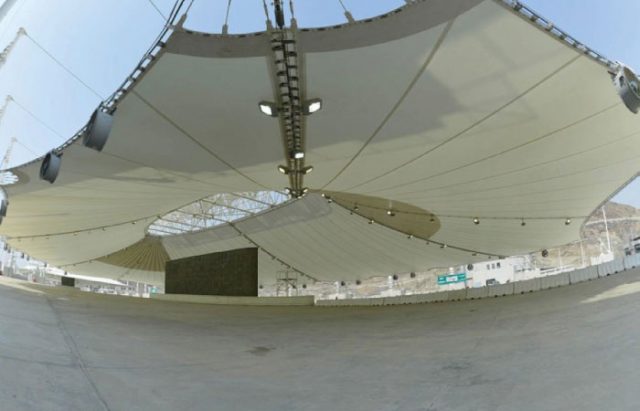
Jamarat Bridge divided into six levels
Makkah Development Authority has divided the hi-tech Jamarat Bridge in Mina into six levels to ensure smooth flow of pilgrims for the stoning-the-devil ritual without stampedes and other accidents.
“The move aims at distributing the hundreds of thousands of pilgrims at various levels of the Jamarat, depending upon the roads and streets they take to reach the place,” said Jalal Kaaki, spokesman of the authority, which oversees development of Makkah and the Holy Sites.
“This will help pilgrims perform the stoning ritual with ease and comfort,” Kaaki told Makkah Arabic daily. “There is a monitoring room inside the Jamarat complex where representatives of relevant government departments would meet to review pilgrim security matters,” he added.
He said all the six levels have been provided with air-conditioning to reduce the impact of scorching sun and soften the atmosphere, in addition to stationing cold water taps along the pathways.
“The Jamarat Bridge is considered one of the major projects implemented by the Saudi government, spending billions of riyals to ensure the security and comfort of pilgrims during the stoning ritual,” Kaaki said.
The barriers around Jamarat bridge are made of special material filled with compressed sponge to ensure pilgrims’ safety.
The basement area, the first level, is allocated for official delegations and state guests while the second level — the ground floor — is for pilgrims who arrive at Jamarat via Al-Jowhara Street No. 56 and Souk Al-Arab Street No. 62. The first floor, which is the third level, is for pilgrims on the pedestrian path No. 1 as well as street numbers 116, 204 and 206 and King Fahd Road No. 86.
The second floor is for pilgrims coming from Aziziya and shuttle buses have been arranged to take pilgrims from Aziziya and back. The third floor, which is the fifth level, serves pilgrims coming from Shuaibeen, Muaisem and Majral Kabsh. The fourth floor or the sixth level is designed for pilgrims who arrive in Mina via Mashaer Train and King Abdul Aziz Road Bridge No. 38.



























